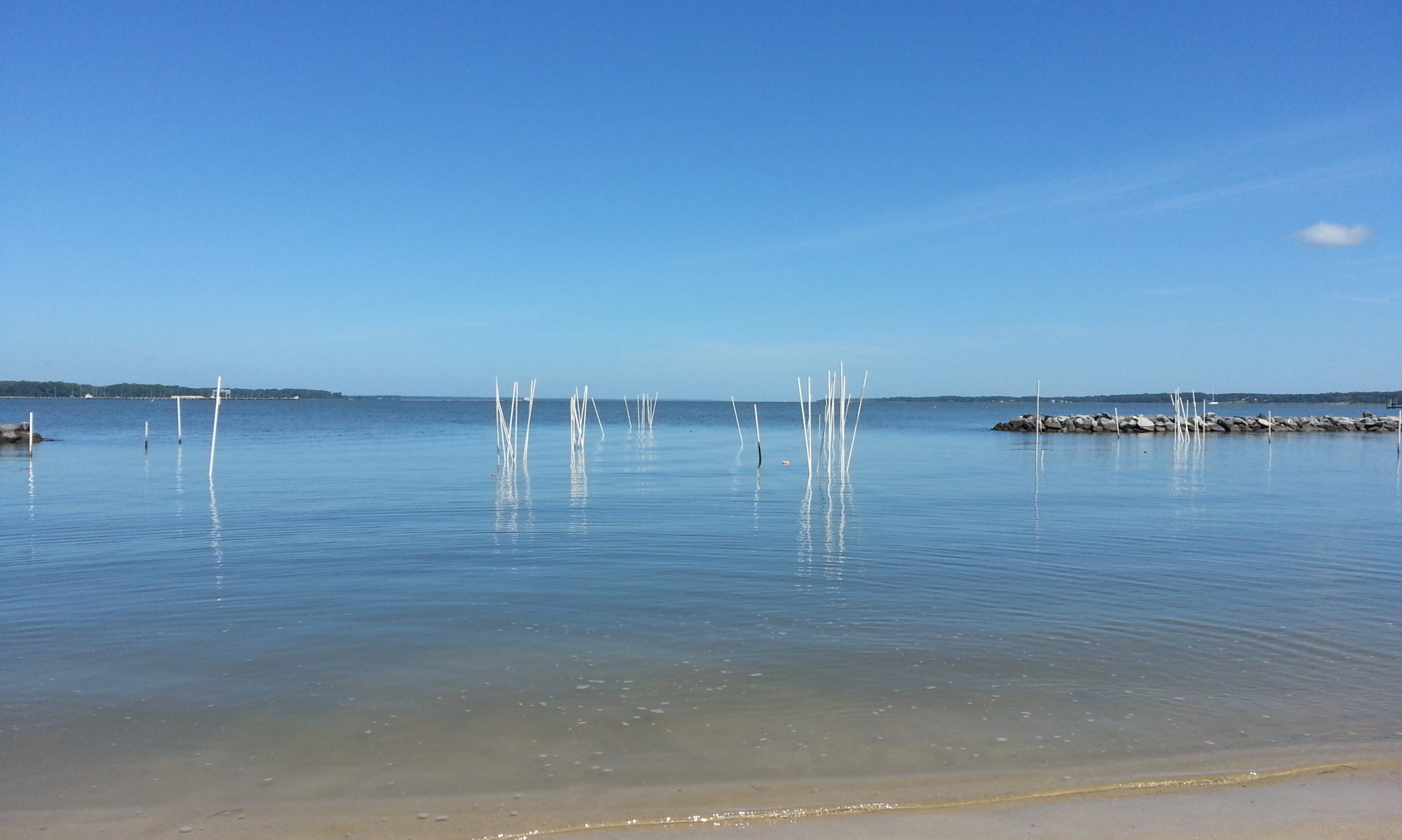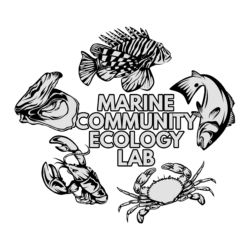The Marine Community Ecology lab at LSU is not currently recruiting graduate students. However, prospective students (MS or PhD) interested in conducting interdisciplinary, collaborative research in coastal systems in the Gulf of Mexico with a focus on marine benthic species or juvenile fish are welcome to inquire about the possibility of pursuing a graduate fellowship.
Ideal applicants will have a strong background in ecology and/or marine science (bachelors or masters degree), excellent written and oral communication skills, and a demonstrated potential to conduct intensive field-based research both independently and as part of an interdisciplinary team. Experience in quantitative ecology (mathematics, statistics) preferred.
Those interested in applying for a position should email Cassandra Glaspie detailing your interest in the lab along with your educational background and relevant skills. Prospective students should also fill out a pre-application form for the Department of Oceanography & Coastal Sciences (DOCS) before applying directly to LSU’s Graduate School. Please review the admission criteria for both DOCS and the Graduate School. Applications must be received before May 15th for admission in the fall semester and by October 15th for the spring semester.
Demystifying Graduate School
How to find and apply for a graduate program: In science graduate programs in the United States, most students will identify their advisor before being accepted for a graduate program. This is because students in thesis-focused STEM graduate programs will typically be paid by a grant (see below section on “how a graduate student salary works”), and individual professors have the responsibility of hiring students to work on their grants. Thus, being accepted into a U.S. science graduate program requires 1) meeting all of the requirements for acceptance into the graduate school of the university; and 2) most importantly, being chosen by your advisor, who must have available funding and is hiring you like an employee. Therefore, when applying to a graduate program, you should send the following to one or more prospective advisors from that university/department: your application materials and a tailored email showing your genuine interest in that particular lab, expressing some understanding of the research happening in that lab and how your interests fit in. That means you have to do your research!
Find prospective advisors by identifying scientific papers or blogs that you enjoy, and look up the authors. Or you can identify a school you want to attend and look up bios of professors in relevant departments. You may also browse forums or sign up for listservs (e.g. ECOLOG-L in ecology) to find an advisor who is currently looking for graduate students. When you identify a program and an advisor, read a bunch of their papers and use that information to show them you understand what they are working on, and that you are genuinely interested in their research. Finally, just like when you apply for any other job, follow up on your email! You may have to email multiple (professional and friendly) reminders to get a response. Many professors get multiple emails per day from prospective students. Set yourself apart from the rest by doing your research and being persistent.
Once you have identified some interested prospective advisors, remember it is a good idea to “interview” your advisor. You may not always be able to visit the lab (but ask if your prospective advisor will cover travel for a visit!), but you can meet with your prospective advisor and get a tour over video chat. You should definitely ask to talk to current graduate students in the lab, lab managers, and/or other students in the department. Ask them what the lab energy is like, what students think of your prospective advisor, how much time the prospective advisor typically has available for their students, what life is like on campus, etc. A graduate program, especially a PhD program, is a big commitment. Do yourself a favor by asking questions to ensure the lab you wish to enter, as well as the program, and any other details important to you (e.g. geographic location, etc), is a good fit.
How a graduate student’s salary and tuition works: The vast majority of graduate students in a science field going to graduate school in the United States should be paid a stipend (salary) for their work, and should not have to pay tuition. Most graduate students in the sciences are paid by research grants, and this includes stipend, tuition, and research funds, which are all written into a grant by a professor (your advisor).
There are professional MS degrees out there that do not pay stipends and charge tuition. Many of these are perfectly legitimate degree programs and depending on your circumstances a professional MS may be the right choice for you, but please know that in the U.S. you have graduate school options that will allow you to get paid while pursuing a master’s or doctoral degree focused on research.
As a graduate research assistant or teaching assistant, you are paid for your time spent on research or teaching assistantship duties. Programs often set requirements of 20 hours spent on this work per week. This work is often expected to be completed in addition to the activities and work associated with your thesis or dissertation project, and you should clarify your work load expectations with your prospective advisor early. Most universities do not allow you to have another job while completing full-time graduate study, though there are exceptions to that rule.
Even though you are only being paid for 20 hours per week spent on teaching or research assistantship duties, you should still expect a living wage as if you were working full-time (40 hours per week). The National Science Foundation stipend posted for 2019 was $34,000. That is the gold standard; however, you should consider the cost of living whenever you assess an offer of graduate program stipend. For example, the current living wage in Washington D.C. (expressed as a yearly full-time salary, as of July 2020) was $35,194. The current living wage in East Baton Rouge is $24,918 per year.
Graduate student fellowships will open a lot of doors: If you come to an advisor and a graduate program with funding, you are almost certainly accepted! There are a few fellowships that allow you to apply before starting graduate school. I recommend identifying an advisor and a graduate program and asking your prospective advisor to help you with the process of writing the project proposal. That way you can learn about your prospective advisor (mentorship strategy, communication frequency, quality of interactions, etc.), and the quality of your proposal will likely increase with the revisions they provide.
Graduate student fellowships will open a lot of doors: If you come to an advisor and a graduate program with funding, you are almost certainly accepted! There are a few fellowships that allow you to apply before starting graduate school. I recommend identifying an advisor and a graduate program and asking your prospective advisor to help you with the process of writing the project proposal. That way you can learn about your prospective advisor (mentorship strategy, communication frequency, quality of interactions, etc.), and the quality of your proposal will likely increase with the revisions they provide.
What to Expect in the Glaspie Lab
Graduate student stipends in the Glaspie lab: I try to apply a 3% cost of living increase to the stipend each year. Here are the salary rates for the last couple of years, and the projected salary increases for the next couple of years.
2019-2020: $25,000
2021-2022: $26,500
You will have to pay for student fees assessed by the university and health insurance out of pocket. Fees can be pretty hefty at LSU- typically around $3,800-$4,000 per year. We will discuss your salary and estimated fees, and you will have a chance to ask current graduate students about health insurance premiums, before you accept your offer.
Mentorship in the Glaspie lab: As your advisor, I take my mentorship role very seriously. I tailor my mentoring style, including meeting style and frequency, to fit each of my students’ needs. I recognize that your needs may change depending on where you are at in your program- that is just fine. I will check in with you to make sure you are comfortable with your degree progress, ensure your personal well-being, and assess the need to readjust strategies as necessary.
Work load expectations and time management in the Glaspie lab: Students in my lab are encouraged to have a healthy work-life balance. I have a flexible time-off and work-from-home policy. As long as the student’s work and degree requirements are being met, students may take vacations, personal days, half days, etc. as needed, and I leave it up to you to decide how and when to get your work done. I am always available to help you come up with a plan that works for you. The main exception to my time-off and work-from-home policies is work with live animals. Animal well-being must be top priority, but thankfully we are a large lab and we can typically find someone to help if needed.
You are expected to spend at least 20 hours per week on research assistantship duties, including lab work, field work, analysis, writing, and literature review. In my lab, research assistantship duties include your own thesis or dissertation research, as well as helping other students in the lab or the field. I expect all of my students to help out on other research projects when requested by other students, and if this additional work load ever starts to create tension between students or seems unfair, I encourage you to come talk to me.
The other 20 hours per week should be spent on your class work, studying for exams, professional development activities, any other activities required for a fellowship or scholarship, and additional time for your own research activities, especially after your first year of classes. There will be weeks where you need to spend all 40 hours on lab or field activities, and this is to be expected for graduate students completing a dissertation or thesis. Please see me if you need help with time management.
Most semesters I will not expect you to teach for your stipend, though this may occasionally be required of you and we will discuss that before you accept your offer.
Tuition and class load in the Glaspie lab: Your full-time class load is 9 credit hours for fall and spring semester. You will not be expected to take classes in the summer, but you will (usually) need to sign up for research credits in the summer. The MS program is 2 years long, and MS students will be done or nearly done with their classes after the first year of study (PhD students will often take longer to complete their course requirements, though this depends on their specific situation). Your tuition is covered by grants or departmental funds. The current rate for tuition (that I pay) is 36% of your salary.

